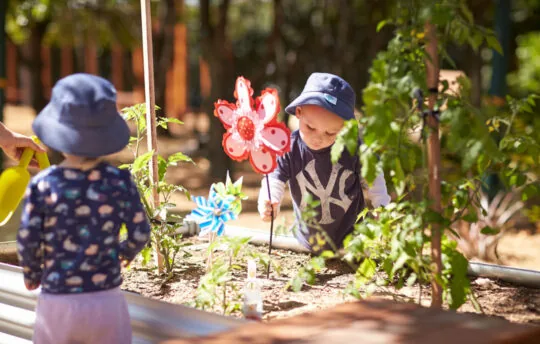Is my Child Eating Too Much Fruit?
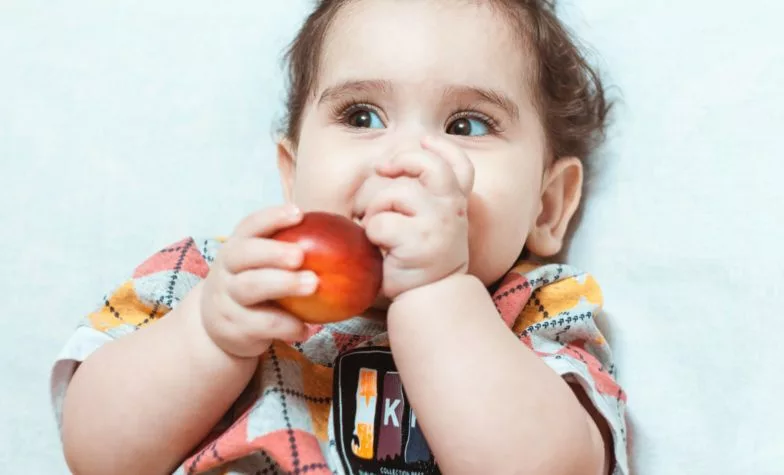
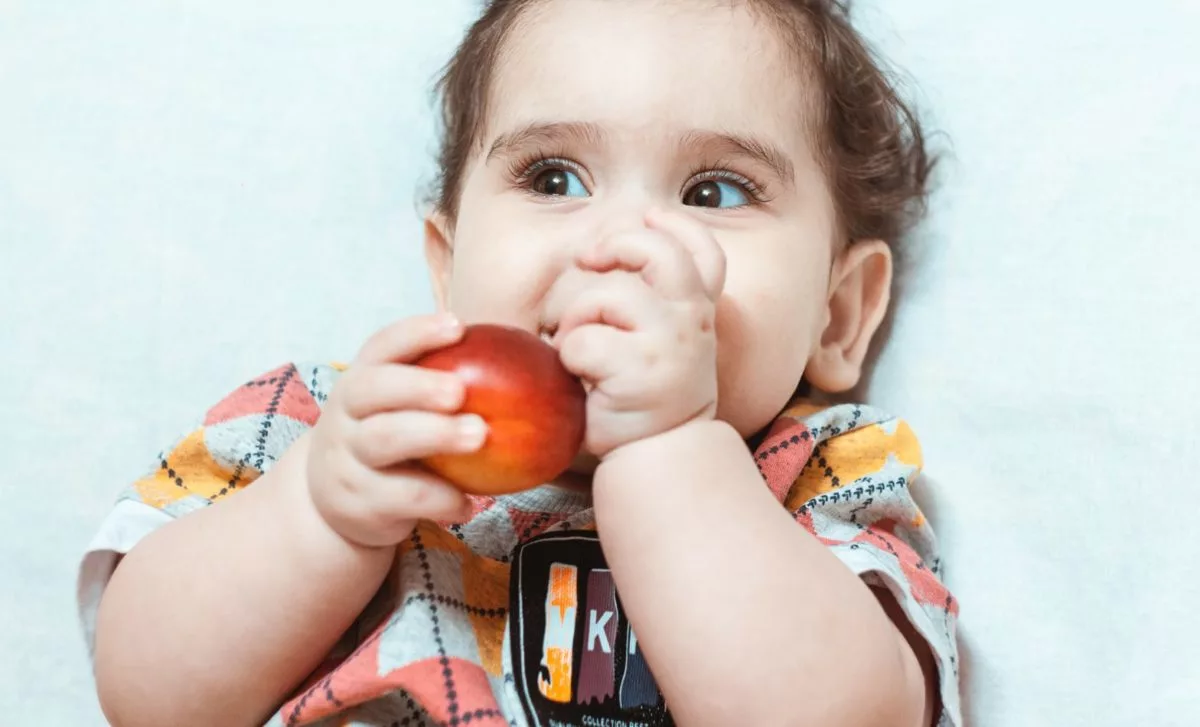
Fruit is wonderful for little and growing bodies. It provides a whole host of vitamins and minerals that are necessary for the body to function properly.
Fruit is also a great source of fibre, which keeps our bowels regular and can reduce the risk of diseases later in life. Although it might seem unnecessary to think about preventing chronic diseases now, remember that small children learn eating habits early in life that they maintain long-term.
The good news is that ~97% of Australian children aged 2-3 years are currently eating enough fruit (compared to only 20% of Australian children eating enough vegetables).
Luckily, for many parents, getting your child to eat fruit is one food war you may have avoided. The more relevant question you might be asking is – can your child eat too much fruit?
Only About Children’s in-house dietitians, Anna and Alex, from The Biting Truth break down how much fruit your child needs each day and outline how much is too much.
How much fruit should children be eating?
Age vs Number of serves of fruit:
1-2 years – ½ serve
2-3 years – 1 serve
4-8 years – 1½ serves
9+ years – 2 serves
What does a serve of fruit look like?
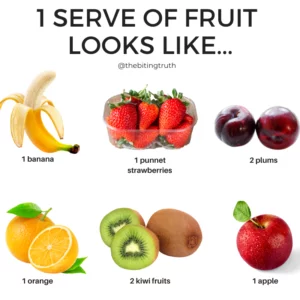
How strictly should I adhere to these guidelines?
These are government guidelines and should be used as a guide. Essentially, this is how many serves of fruit you want to aim to offer your child every day.
Giving your child slightly more than this each day is not (usually) a problem and may even be a good thing. For example, it’s important to consider what else your child would be eating if not fruit? If they would otherwise be eating candy, chips or other junk foods then of course fruit is a much better option! Fruit is always a better option than processed junk foods.
Be mindful that it can be easy for fruit in a child’s diet to add up quite quickly (sometimes without realizing). Let’s take an 18-month-old for example. You might offer them a smoothie with a serve of fruit for breakfast, a banana as a snack and some strawberries after dinner. Very quickly that can add up to 3 serves of fruit a day (much more than the recommended ½ serve for an 18-month-old).
What happens if my child is eating too much fruit?
Most children will always have a preference for sweeter food. For this reason, fruits tend to be readily eaten and enjoyed sometimes to the exclusion of blander vegetables.
There are a few potential issues when it comes to children overconsuming fruit:
Eating too much fruit can fill up your child’s tummy, leaving little room for other important food groups like dairy, wholegrains and proteins.
While fruit is a great source of fibre, vitamins, minerals and antioxidants, unfortunately it has little protein and virtually no fat, which are both essential for a growing child.
Too much sugar, even if it is natural sugar as is the case with fresh fruit, can mean too many calories even for children.
If your child loves fruit, that’s great! However, you want to make sure they are still eating a varied and balanced diet.
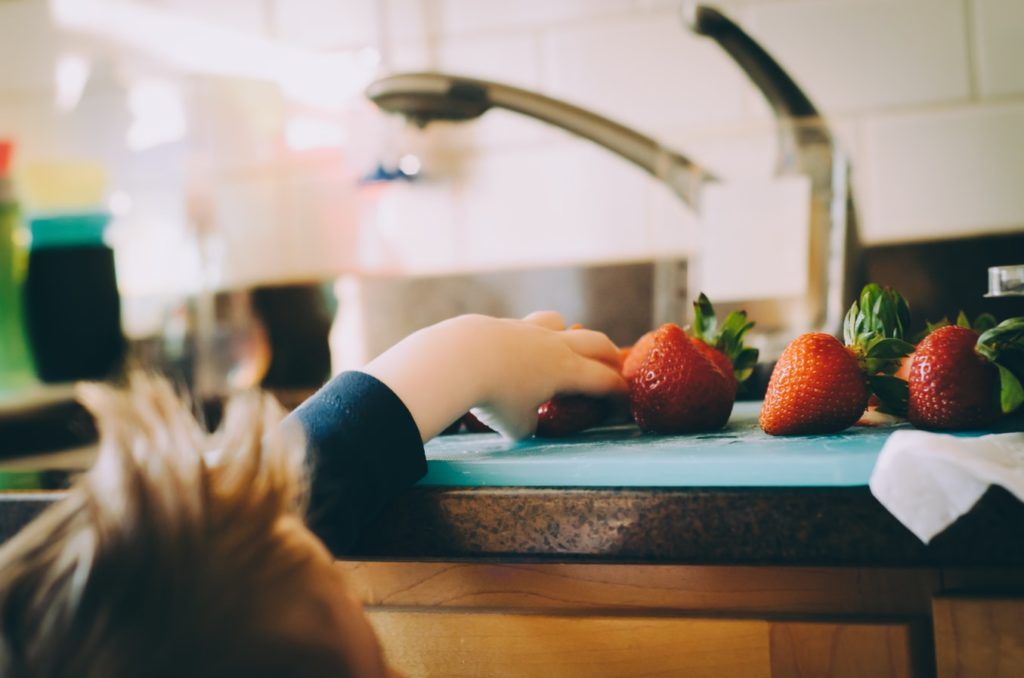
The type of fruit matters
Dried fruit and fruit juice do technically count towards a child’s fruit intake, however, we recommend only offering these occasionally. Eating dried fruit regularly is not recommended as it is high in calories and increases the risk of dental decay.
Nutritionally, fruit juice doesn’t compare to fresh fruit. Fruit juice is lower in fibre and higher in sugar. Children who drink large volumes of fruit juice are at a greater risk of iron deficiency. This is because children can fill up on juice and therefore reduce their appetite for iron-rich foods.
Another key consideration is that it is very easy for children to eat/drink too much dried fruit/fruit juice. Think about a small glass of freshly squeezed orange juice. It can take 3 whole oranges to make one glass of juice, which can then be consumed very quickly and is not overly filling for children.
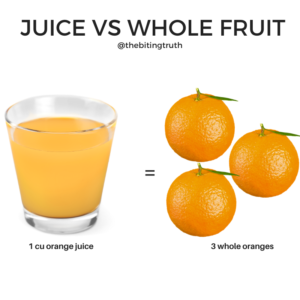
Offering your child fresh fruit is the best way for them to reap the benefits of fruit. In addition to the vitamins and minerals, fresh fruit is high in fibre and water which are important for a healthy digestive system.
Are all fruits safe for my child?
Pretty much any fruit is good for toddlers – you don’t really need to worry about the natural sugar content in fruit.
Focus on offering a variety of colours and types of fruits from an early age. Different colours will provide different vitamins, minerals and antioxidants, which can support your child’s health in different ways.
Depending on the age of your child, there are some considerations regarding choking hazards and chewing abilities. Certain fruits might need to be chopped up to make them safe for little ones to eat e.g. grapes or berries and always remove the stone from fruits such as nectarines and plumbs.
The bottom line
Fruit is an essential part of any child’s diet, however, be mindful of going too overboard with fruit as even too much of a good thing can be harmful!
For more great reading see: 6 Tips to Keep your Kids Healthy over the Holidays
For information on our Dietitian-designed menu offerings at Only About Children see our Nutrition page.
Only About Children can help your child to grow, make friends and explore the world.
Only About Children can help your child to grow, make friends and explore the world.
Related Reads
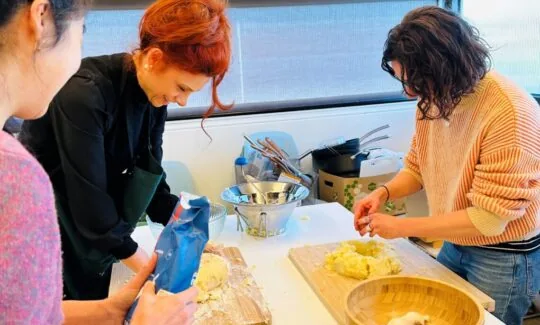
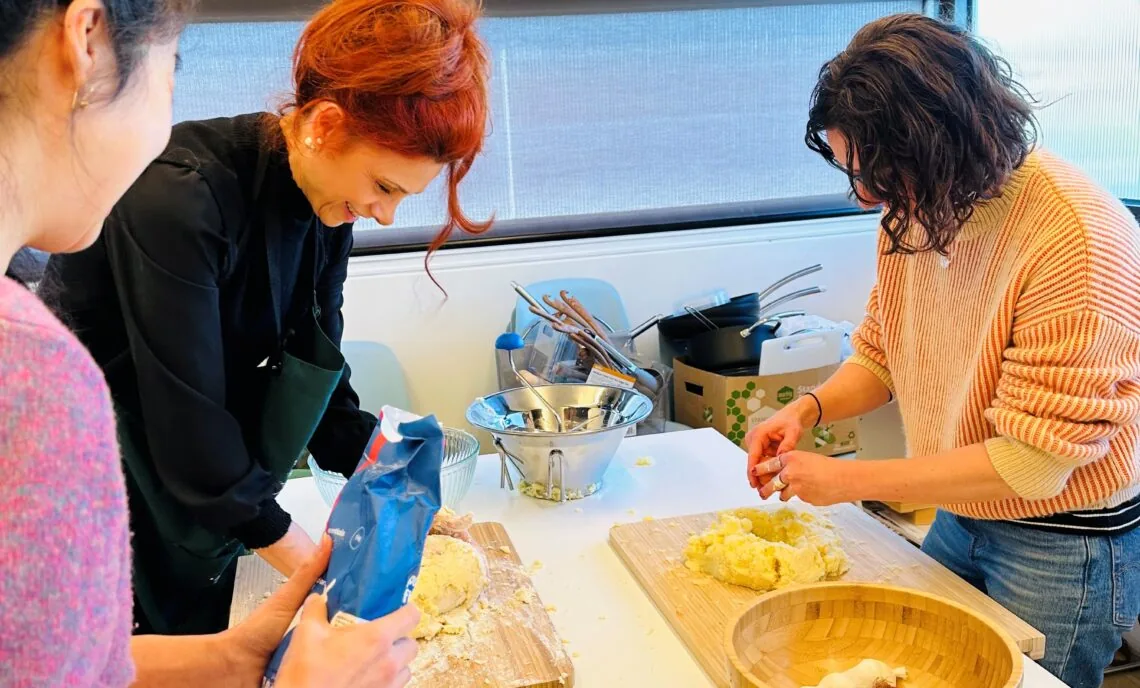
Family Cooking Classes at OAC Elsternwick
Families at OAC Elsternwick recently joined our second hands-on cooking class, led by Educational Leader Enza, to learn, connect and explore our nutrition program in action.

OAC Asquith engages with our community emergency services
Stop, drop and roll, stranger danger, healthy bodies, and sirens